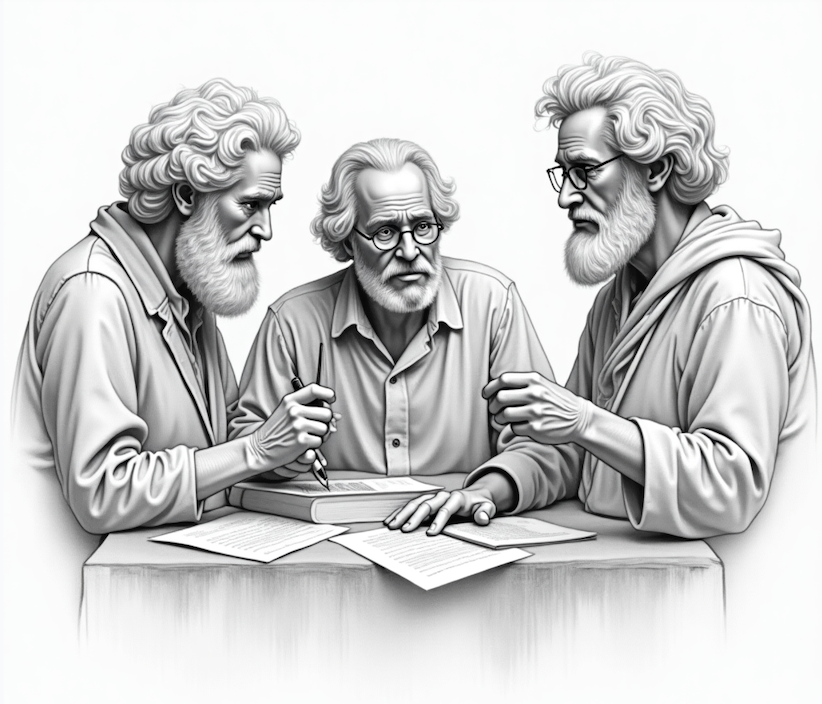What do Philosophers say about...

But first, a look at the topic we're exploring today
The Essence of Identity
Identity is the unique combination of characteristics, beliefs, and experiences that define who a person is. It's shaped by various factors including culture, family, friends, and personal experiences. Identity influences how individuals see themselves and how they are perceived by others. It evolves over time as people grow and encounter new life experiences. Understanding one's identity is crucial for personal development and self-awareness, offering a sense of belonging and purpose in the world. In essence, identity is the core of what makes each person distinct and uniquely valuable.

Perspectives of Philosophers on Identity
1. John Locke
John Locke considered personal identity to be founded on consciousness, particularly memory, rather than on the substance of either the soul or the body. According to Locke, we are the same person to the extent that we are conscious of the past and future thoughts and actions in the same way as we are conscious of present thoughts and actions. Locke's theory suggests that personal identity is based on a continuous consciousness, and it is this continuity of consciousness that constitutes personal identity.
2. David Hume
David Hume argued that personal identity is a result of the bundle theory of the self, where the self is nothing but a bundle or collection of different perceptions that succeed each other rapidly. Hume denied the existence of a permanent self, stating that identity is not a relation between objects but a collection of perceptions.
3. Derek Parfit
Derek Parfit challenged traditional notions of personal identity by proposing thought experiments like the teletransportation problem. Parfit argued that personal identity is not about having a numerically identical physical body but about psychological continuity. He suggested that being the same person over time is not what matters, but rather the continuity of psychological experiences.
4. Immanuel Kant
Immanuel Kant introduced the concept of the transcendental unity of apperception, which refers to the self-consciousness that must accompany all our representations. According to Kant, this self-consciousness is necessary for the possibility of experience, and it is what provides the unity of consciousness. Therefore, personal identity is grounded in the unity of consciousness provided by the transcendental self.
5. Ludwig Wittgenstein
Ludwig Wittgenstein, in his later works, suggested that the concept of identity is problematic. Wittgenstein argued that saying two things are identical is nonsensical, and to say one thing is identical to itself is to say nothing. He emphasized that identity is not a relation between objects, but rather, it is about how we use language and the criteria we adopt for saying that something is the same.
These perspectives highlight the diverse and complex nature of the philosophical inquiry into identity, each offering unique insights into what constitutes the self and personal identity.
